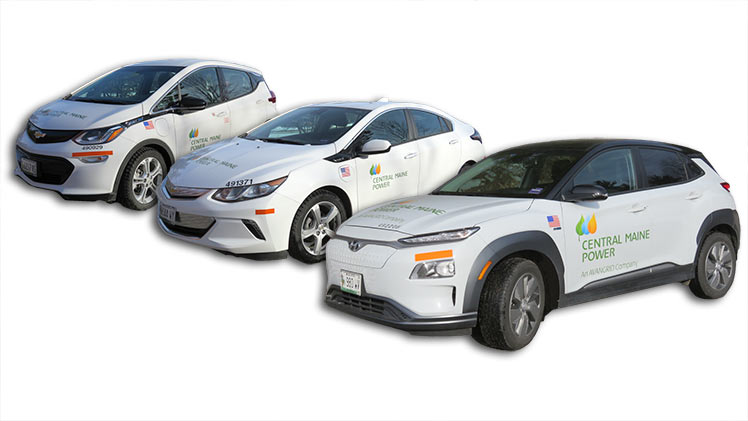Plug-In Electric Vehicles

Plug-in Electric Vehicles (PEVs) refers to plug-in hybrid electric vehicles and electric vehicles:
- Plug-in Hybrid Electric Vehicles (PHEVs) are vehicles that run on gas and electric (or battery).
- Electric Vehicles (EVs) run purely on electric from a battery.
Plug-in Electric Vehicles Offer Three Great Benefits
- Low Maintenance: Because Battery Electric Vehicles do not have a transmission or combustion engine, eliminating oil changes, fuel filters, emissions testing and other costly maintenance, there is a cost savings. A simplified drive train and braking system also means greater reliability and fewer potential repairs, too.
- Low Environmental Impact: About one-third of the nation’s greenhouse gas emissions come from transportation, and 60 percent of that is from personal vehicle use. Plug-in electric vehicles have fewer emissions than a gasoline engine. Studies have shown that a mass shift from gas-powered cars to plug-in hybrids or electric vehicles would result in lower pollution, including lower emissions of greenhouse gases.
- Good Fuel Economy: Electric vehicles are less costly to run because they use electricity for all or part of their power.
PEVs are becoming easier to find. Many car manufacturers now offer PEVs and many more are working on developing new models.
We’re Proud To Support Electric Vehicle Adoption
- Learn more about why CMP is involved with electric vehicles
- Find answers to some Frequently Asked Questions about electric vehicles below
Additional Resources and Information
Related Links
- U.S. Department of Energy
- Plug in America
- Electric Drive Transportation Association
- The Electrification Coalition
- Electric Charging Station Locations in the U.S.
Please read the Frequently Asked Questions below for additional information.
